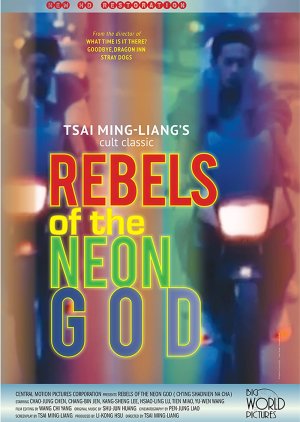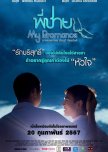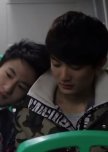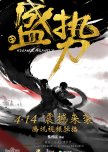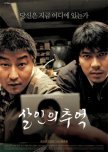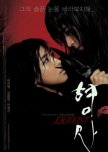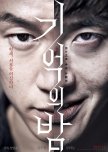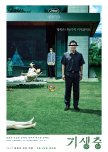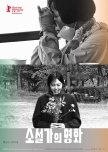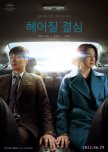
Această recenzie poate conține spoilere
Character driven with a melancholy atmosphere
Step back to a place in time with video arcades, skating rinks, phone booths, pagers, and no cell phones. Teens have been rebelling since the dawn of time and these teens were trapped in the cement jungle of Taipei with only the detached neon god spreading harsh artificial light over the packed, dreary streets. Welcome to the Rebels of the Neon God.The film follows the lives primarily of Hsiao and Ah Tze. Hsiao is a teenager failing at his college cram school and completely disinterested in studying. He lives with his parents in a small, but comfortable apartment. His mom is convinced that he is the reincarnation of the god Nezha, explaining the emotional distance between father and son. Tze is a petty crook who with his buddy, Ping, steals change from phone booths and vending machines to use at the arcade. Hsiao's father is a taxi driver whose side-view mirror is broken when Tze smashes it in an act of rebellious aggression, an act that will come back to haunt him in more than one way.
Tze lives with his brother in a filthy apartment with a backed-up kitchen drain that constantly floods the place. He sleeps on a cot above the moat, flicking cigarette butts into the swill. He begins a relationship with Kuei, his older brother's one night stand. She works in a skating rink and for the phone "dating" service but is as aimless as Tze and Ping. When Hsiao withdraws from the college prep class and pockets the money, fate brings him across the path of Tze. He stalks Tze with the adeptness of a serial killer, watching as he and Ping steal the motherboards from the arcade's games. Hsiao's father locks him out of the house for taking the refund money and disappearing. With nowhere else to go, Hsiao returns to the hotel to rent a room where Tze and Kuei are spending the night. Obscured by the falling rain he takes the opportunity to have a little revenge for the road rage incident by vandalizing Tze's motorbike and spray painting that Nezha was there next to it. For nearly the entire movie Hsiao is emotionless and speaks no more than 10 words, but when he sees Tze's frustration over his destroyed bike he literally dances with joy. When the mother board deal goes south, the petty crooks end up escaping in the cab with Hsiao's dad which triggers reactions in both Tze and the father with feelings of guilt for both men.
None of the youth had anything to look forward to and sought to find pleasure in the moment, whether it was games, smoking, sex, or impaling a cockroach on a desk. Hsiao was an isolated boy with anger seething below his benign face, unable to measure up to what his parents wanted from him. Whether he went home again or remained on the streets was never answered, although his father left the door cracked open for him. Hsiao's parents worshipped the old gods, he and the others answered to the cold god of the streets. Tze was always restless whether pulling small jobs, hanging out with his friends, or smoking like an inmate marking time in his apartment. Ping and Kuei were largely side characters, the loyal buddy and the girl Tze had sex with, but struggled to commit to. Despite their gritty exteriors, Tze and Ping weren't hardened criminals, they simply had nowhere to go and no better tomorrow to look forward to.
The area of Taipei where the movie was filmed came across as dirty and deteriorating though there were signs of new construction. Rain fell almost constantly, making the urban setting more claustrophobic. Aside from Tze's dilapidated apartment, two seedy hotels were used as sets, complete with porn on the small televisions. The streets, school room, and arcades were packed with people, people who were side by side but not communicating. Phone "dating" was shown several times, so even the normal act of meeting someone was difficult to do.
These young people were alienated from the general society, living somewhere on the edge without a safety net below them, desperately searching for belonging. Despite the oppressive atmosphere, there was a glimmer of hope. Each person who watches the film will likely come away with a different interpretation based on age and walk of life. I saw young people who felt trapped, rebelling against the suffocating box they'd been put into. They were all longing for love and acceptance and something that would help propel them to a brighter future but with no idea how to get there.
8/9/23
Considerați utilă această recenzie?

Această recenzie poate conține spoilere
The futility of rebellion ...
WOW ... this 1992 movie was very thought provoking and really really well done and is as relevant today in 2023 as it was in 1992 ... 31 years later.The OS, a simple low repeating tune, and the amazing cinematography created a palpable sense of heaviness and dankness of a decaying world. Everywhere, inside and outside, was so confining ... so chock a block full of stuff but so 'dead' and 'empty'. The built environment, always in a state of decay and repair (which never seemed to make any overall difference), was mirrored in the trapped lives of the characters inhabiting it. Decay and alienation ebbed and flowed in their lives like the drain in Ah-Tse's apartment, like the low repeating tune that played in the background ... ever present ... ebbing and flowing ... every step forward they made, they were pushed back three ... never getting ahead ... always wallowing in decay. The alienated and dead pan looks on everyone's faces ... I wondered how they kept on going on when nothing seemed to make any difference .. not even rebellion made a difference.
The 360 degree "cause and effect" and the interconnectedness of all the events that played out in everyone's lives was very well scripted and very thought provoking ... from that fateful meeting where the taxi mirror was smashed to the same taxi bringing the 'smashed' perpetrators back home ... the Father leaving the door to their apartment ajar after having slammed it in his son's face telling him he was not allowed in ... the hug between Ah-Tze and his girlfriend Ah-Kwei while standing in the overflowing drain water, both wanting to escape but having no idea where to escape to or even how to escape ... it really hit hard ... it felt so desperate and hopeless ... like a terrible oppressive black hole that mercilessly swallows up any joy and pulls you back in every time you try to escape ... the futility of it all.
At the end of the movie, feeling really emotionally depleted, I wondered ... how would things have turned out if Ah-Tze hadn't smashed the taxi mirror and Hsiao-Kang and his Father ended up going to the movies ... hmmm ... sadly, I think it would have only delayed the inevitable ... one way or another their souls will be consumed by the decay.
Considerați utilă această recenzie?

Řeka, Kruhy pod očima, Rizi ... to jsou filmy režiséra, které jsem viděl (na Ai Qing se teprve chystám) a přesto, že většinou byly tyto snímky diváky odsouzeny, mě se líbily nejen proto, že jsou zcela jiné. Tak tomu bylo i u tohoto téměř revolučního projektu, který se natrvalo vepsal do dějin taiwanského filmu a kdy jsem gay tématiku vnímal zčásti jen proto, že jednu z postav hraje herec Lee, jinak je téměř nepostřehnutelná. Osobité, originální a dá se na to dívat i po tolika letech ...
Considerați utilă această recenzie?

Amazing vibes
I can easily see how some people could find this film boring but for me it was just all about the vibes, and the vibes were immaculate.The cinematography was great and I really loved how there was not a lot of dialogue; even when there was, every shot had the right amount of time and emotional weight dedicated to it. It's very nostalgic, very slice-of-life, and watching it felt like I was unplugging myself from the rest of the world.
This is a film about feeling alone in a crowded room, about watching from a distance, about small psychological victories, and I 100% felt all of it.
Considerați utilă această recenzie?

